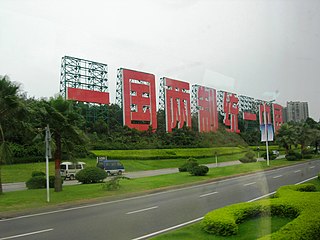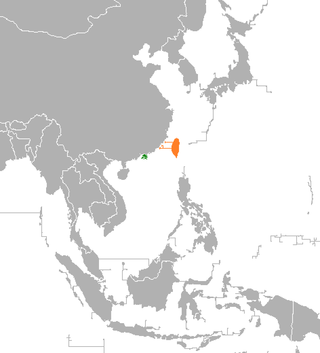| This article is part of a series on the |
| History of Hong Kong |
|---|
 |
| Timeline |
|
| By topic |
The 2020s in Hong Kong refers to Hong Kong during the current period of Hong Kong from 2020 until present under the People's Republic of China (PRC).
| This article is part of a series on the |
| History of Hong Kong |
|---|
 |
| Timeline |
|
| By topic |
The 2020s in Hong Kong refers to Hong Kong during the current period of Hong Kong from 2020 until present under the People's Republic of China (PRC).
2020 National security law, implemented on 30 June 2020, is the piece of national security legislation concerning Hong Kong.
2020 National anthem ordinance, implemented on 12 June 2020, criminalises "insults to the national anthem of China" ("March of the Volunteers").
2021 Hong Kong electoral reform, implemented on 11 March 2021 by the National People's Congress (NPC), the sole legislative body of the People's Republic of China (PRC), in order to "amend electoral rules and improve the electoral system of the Hong Kong Special Administrative Region (HKSAR) for its Chief Executive (CE) and the Legislative Council (LegCo), in order to ensure a system in which patriots govern Hong Kong and plug existing loopholes that allow foreign interference in Hong Kong's internal affairs. [1] [2]

The politics of Hong Kong takes place in a framework of a political system dominated by its quasi-constitutional document, the Hong Kong Basic Law, its own legislature, the Chief Executive as the head of government and of the Special Administrative Region and of a politically constrained multi-party presidential system. The Government of the Hong Kong Special Administrative Region of the People's Republic of China is led by the Chief Executive, the head of government.

"One country, two systems" is a constitutional principle of the People's Republic of China (PRC) describing the governance of the special administrative regions of Hong Kong and Macau.

The Standing Committee of the National People's Congress (NPCSC) is the permanent body of the National People's Congress (NPC), the national legislature of the People's Republic of China. It exercises the powers of the NPC when it is not in session.

The Basic Law of the Hong Kong Special Administrative Region of the People's Republic of China is a national law of China that serves as the organic law for the Hong Kong Special Administrative Region (HKSAR). Comprising nine chapters, 160 articles and three annexes, the Basic Law was composed to implement Annex I of the 1984 Sino-British Joint Declaration.

The region of Hong Kong has been inhabited since the Old Stone Age, later becoming part of the Chinese Empire with its loose incorporation into the Qin dynasty. Starting out as a farming fishing village and salt production site, it became an important free port and eventually a major international financial center.

Elections in Hong Kong take place when certain political offices in the government need to be filled. Hong Kong has a multi-party system, with numerous parties in the Legislative Council. The Chief Executive of Hong Kong is nonpartisan but can work with several parties to form a coalition government.

The handover of Hong Kong from the United Kingdom to the People's Republic of China was at midnight on 1 July 1997. This event ended 156 years of British rule in the former colony, which began in 1841.

Chinese nationality law details the conditions by which a person holds nationality of the People's Republic of China (PRC). The primary law governing these requirements is the Nationality Law of the People's Republic of China, which came into force on September 10, 1980.

Democratic reforms in Hong Kong did not seriously begin until 1984 and has faced significant challenges since 2014. The one country, two systems principle allows Hong Kong to enjoy high autonomy in all areas besides foreign relations and defence, which are responsibilities of the central government. Hong Kong's Basic Law allows residents to vote for local district councillors.

Hong Kong–United States relations are bilateral relations between Hong Kong and the United States.

The Constitutional and Mainland Affairs Bureau is a ministerial-level policy bureaux of the Government of Hong Kong responsible for the implementation of the Basic Law, including electoral matters and promotion of equal opportunities and privacy protection. The bureau also functions as the intermediary between the HKSAR Government and the Central People's Government and other Mainland authorities under the principles of "One Country, Two Systems", including the coordination of liaison between the HKSAR Government and Central authorities, promoting regional co-operation initiatives between Hong Kong and the Mainland, and overseeing the operation of offices of the HKSAR Government on the Mainland.

Hong Kong independence is the notion of Hong Kong as a sovereign state, independent from the People's Republic of China (PRC). Hong Kong is a special administrative region (SAR) of China and is thus granted a high degree of de jure autonomy, as stipulated by Article 2 of the Hong Kong Basic Law ratified under the Sino-British Joint Declaration. Since the handover of Hong Kong from the United Kingdom to the PRC in 1997, a growing number of Hongkongers have become concerned about what they see as Beijing's encroachment on the territory's freedoms and the failure of the Hong Kong government to deliver "genuine democracy". Advocating for Hong Kong independence became illegal after the Hong Kong national security law in 2020.

The 1994 Hong Kong electoral reform was a set of significant constitutional changes in the last years of British colonial rule in Hong Kong before the handover of its sovereignty to the People's Republic of China (PRC) on 1 July 1997. The reform aimed at broadening the electorate base of the three-tiers elections in 1994 and 1995, namely the 1994 District Board elections, the 1995 Urban and Regional Council elections and the 1995 Legislative Council election. It was the flagship policy of the last colonial governor Chris Patten.

The Sixth Legislative Council of Hong Kong was the sixth meeting of the legislative branch of the Hong Kong Special Administrative Region Government. Running from 1 October 2016 to 31 December 2021, it was the longest legislative session in Hong Kong history, lasted for five years and three months. The term of the session was originally from 1 October 2016 to 30 September 2020, but was extended by the National People's Congress Standing Committee (NPCSC) due to the postponement of the 2020 Legislative Council election.

Relations between the government of Hong Kong SAR of the People's Republic of China (PRC) and the Taiwan Area of the Republic of China (ROC) encompass both when Hong Kong was under British rule or when the Republic of China controlled mainland China and afterwards the ROC fled to Taiwan. This is also a part of the Cross-strait relations.

The National Anthem Ordinance is an ordinance of Hong Kong intended to criminalise "insults to the national anthem of China". It is a local law in response to the National Anthem Law of the People’s Republic of China.
Events in the year 2020 in Hong Kong.

The Law of the People's Republic of China on Safeguarding National Security in the Hong Kong Special Administrative Region is a national law of China on Hong Kong national security passed in 2020. It is implemented in Hong Kong in accordance with Hong Kong Basic Law Article 18, which allows for China's national laws to be valid in Hong Kong if they are included in Annex III. It was formulated under the authorization of the National People's Congress decision on Hong Kong national security legislation. The law was passed on 30 June 2020 by the Standing Committee of the National People's Congress as a means of resolving the anti-extradition bill protests instigated by a Hong Kong local bill proposed in 2019 to enable extradition to other territories including the mainland, and came into force the same day.
Events in the year 2021 in Hong Kong.

The 2021 Hong Kong electoral changes were initiated by the National People's Congress (NPC) on 11 March 2021 to "amend electoral rules and improve the electoral system" of the Hong Kong Special Administrative Region (HKSAR) for its Chief Executive (CE) and the Legislative Council (LegCo), in order to ensure a system in which only "patriots", according to the Chinese definition, govern Hong Kong. The reforms have been widely criticized for their negative impact on the democratic representation in the Hong Kong legislature.